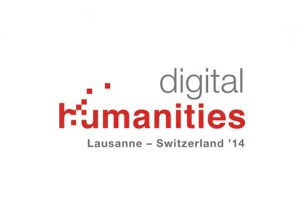DH2014 Workshop: Are we there yet? Functionalities, synergies and pitfalls of major digital humanities infrastructires
1. Workshop Title: Are we there yet? Functionalities, synergies and pitfalls of major digital humanities infrastructures
Tuesday, July 8th 2014, 13.00-16.00 hours.
2. Maximum Number of Participants: 30 (flexible)
3. Facilitator(s):
Agiatis Benardou, Research Associate, Digital Curation Unit, IMIS-Athena Research Centre, Athens, Greece
Erik Champion, Professor of Cultural Visualisation at Media Culture and Creative Arts, Humanities Faculty of Curtin University, Perth, Australia
Lorna Hughes, University of Wales Professor and Chair in Digital Collections, National Library of Wales, Aberystwyth, United Kingdom
4. Overview:
This workshop aims to bring together leading scholars involved in major digital scholarly infrastructure projects such as DARIAH, NeDiMAH, Europeana Cloud,ARIADNE, 3D ICONS, EHRI,DASISH, LARM, CLARIN, DiRT and DHCommons, in dialogue with practising digital humanists. Topics to be addressed include cultural heritage and digital media infrastructures, tools and services; the creation and curation of humanities digital resources; social and institutional issues of Digital Humanities infrastructures; and finally, lessons learnt from the role of digital humanities in pedagogy and academic curricula. It will provide an opportunity for humanists to find out about cutting edge developments on major digital infrastructure initiatives in Europe and beyond, and to make their views matter on future developments in this field.
The workshop aims to go beyond a description of project presentations. It will seek to provide an analytical framework that could contribute to a critical understanding of the current state of digital infrastructures vis-à-vis the potential of digital archives, tools and services for humanities scholarship, by addressing the following questions:
1. What are the objectives of each digital infrastructure project, and what are its intended users?
2. What are the functionalities and outcomes it aims to provide, and how do they serve the overarching goal of supporting and transforming humanities research?
3. To what extent were the needs of humanities researchers considered, and how is the digital humanities research community involved in the project?
4. Are there potential synergies, and actual collaboration, with other infrastructure projects? Conversely, are there any overlaps?
5. What are the main lessons learned from the life of the project so far? What are the pitfalls and potential failures, and what improvements could be achieved?
5. Audience:
The half-day workshop is expected to be of interest both to those involved in digital research infrastructure work, and to digital humanists who may benefit from the use and contribute to shaping the plans for future developments of digital infrastructures, tools and services.
Proposals should consist of an abstract of up to 500 words and a short bio which should be submitted by e-mail to: a.benardou@dcu.gr
The submission deadline is April 30th 2014.
The proposals will be evaluated and selected by a program committee of international experts. The length allocated to each contribution (10-15 minutes) will be decided by the program committee, depending on the number of contributions and the strength of the proposals.
Notifications regarding the acceptance of proposals will be sent out by May 14th, 2014.




